It was at Una Baines’ flat on Kingswoood Road, just off Bury New Road in Prestwich Village, that The Fall was formed in 1977, along with then partner Mark E Smith, Martin Bramah, Tony Friel and Karl Burns…
The Kingswood Road address is now on The Fall tourist map as a must-see venue. How does that feel?
Una: Yep, some people are charging for these trails, I’ve missed a trick! I moved into Kingswood Road when I was 18 and loved it. There was woman who lived next door called Molly. She was a real classic cat lady, in her 60s, and if I ever got any cats she’d lure them in with chicken. I felt like I was living in the countryside amongst all the greenery and trees, as I’d come from Collyhurst. There were little antique shops, and it was a very gentle, lovely existence.
There were young people with lots of visionary ideas in the pubs in those days, when people talked about philosophy and politics and mysticism and things like that. Prestwich back then was a bit of a hippy type place, although I don’t think it was pretentious enough to be called a ‘scene’.
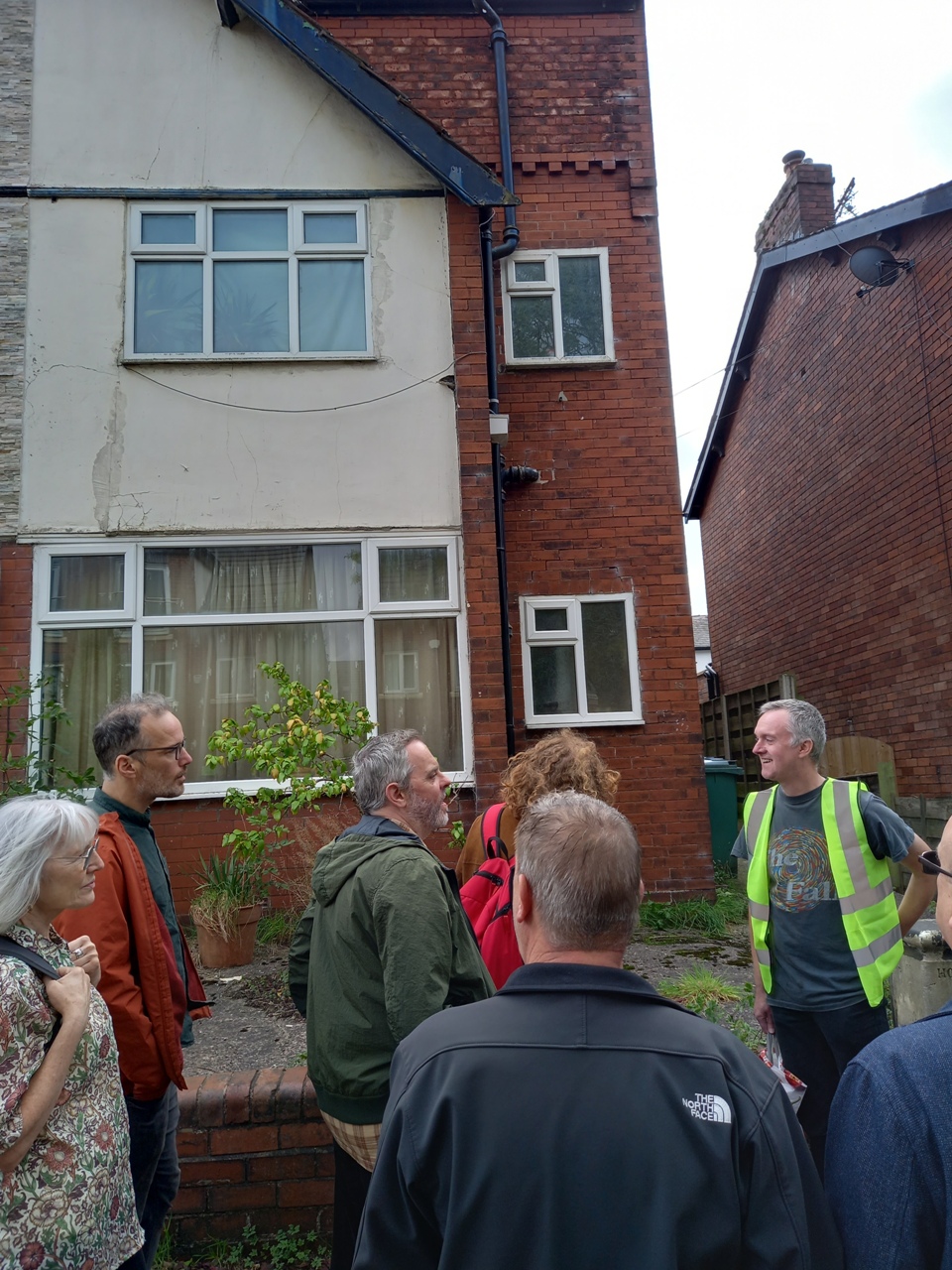
How did The Fall fit into that?
Una: We weren’t trying to be like anything, we were just doing experimental music. I think Mark had been writing for ages anyway, so he already had loads of stuff. I used to come home from working as a student nurse at Prestwich Hospital and we’d go out for a pint, me and Mark and his mates. I would drink five or six pints and rant about the hospital so I think he picked up on it! It felt very liberating doing things like Repetition…
‘This is the three R’s
The three R’s
Repetition, repetition, repetition
Oh mental hospitals
Oh mental hospitals
They put electrodes in your brain
And you’re never the same
You don’t dig repetition
You don’t love repetition
Repetition in the music and we’re never going to lose it..’
Yes it was great for me; it felt amazing to be able to perform a song like that to an audience who might listen and think about it. We were taught that people who had epilepsy tended not to have schizophrenia and that’s why they started using the electric discharge, to emulate convulsions. It’s the most backward, banal reason and yet they still do it to this day. I thought they’d got rid of it years ago but they haven’t.
In Mark’s autobiography, Renegade, he writes about bringing patients back to the flat, playing them rock and rock and giving them tea and cakes. How was that?
Una: Mark wasn’t happy with Renegade. It was ghost written and he’d say ‘I can’t believe they’ve put that in it’ – he rambled on when he was drunk and they just took everything and stuck it in. But he could have written a good book himself.
The account is slightly exaggerated but yes I did bring patients back to the flat in my dinner hour and have tea and scones because it was right next to the hospital. But then I worked in a ward at the back of the hospital, I think it was called Clifton House, and it was like walking into another era where they all wore the uniforms with the pinnies and the little hats. The most shocking thing was the silence. You’d go into the communal areas and it was just silence. The staff deliberately asked me to take patients in wheelchairs and on crutches to put a stop to what I was doing. I’d get back late and get a bollocking.
What was Prestwich Hospital like back then?
Una: I’ve never got over it. I was a student nurse and the school was actually in the grounds of the hospital and the tutors were quite futuristic but they used to say ‘When you go out there you can’t come back to us to back you up’. I think some of them were nurses who thought they could make a difference by going into teaching, so the teaching was ok but there was no back up. You were 18 years old and seeing the horror of Prestwich Hospital – I think I was too young really to be working there because it affected me so much, all I could talk about was what was going on there.
I used to think it was a legalised concentration camp, a drug experimentation facility. The first ward I worked on was elderly ladies, and basically they were there because they had nowhere else to go. ‘Mentally ill’ was a very loose thing everyone was tarnished with but a lot of them just had anxiety and depression and who wouldn’t now be in a place like that.
People who were allowed to come and go had hospital clothes that didn’t fit them, and they were drugged up. You could spot someone from Prestwich Hospital a mile off. I loved working with the old ladies but they were all drugged up on Largactil, a knock out tranquilliser that stops people from thinking. They were supposed to have different illnesses but they were all on the same drug. I was off one weekend and came back on and they’d all been put on a new drug Haloperidol. They were just vegetating, whereas they could have had some quality of life. But they didn’t.
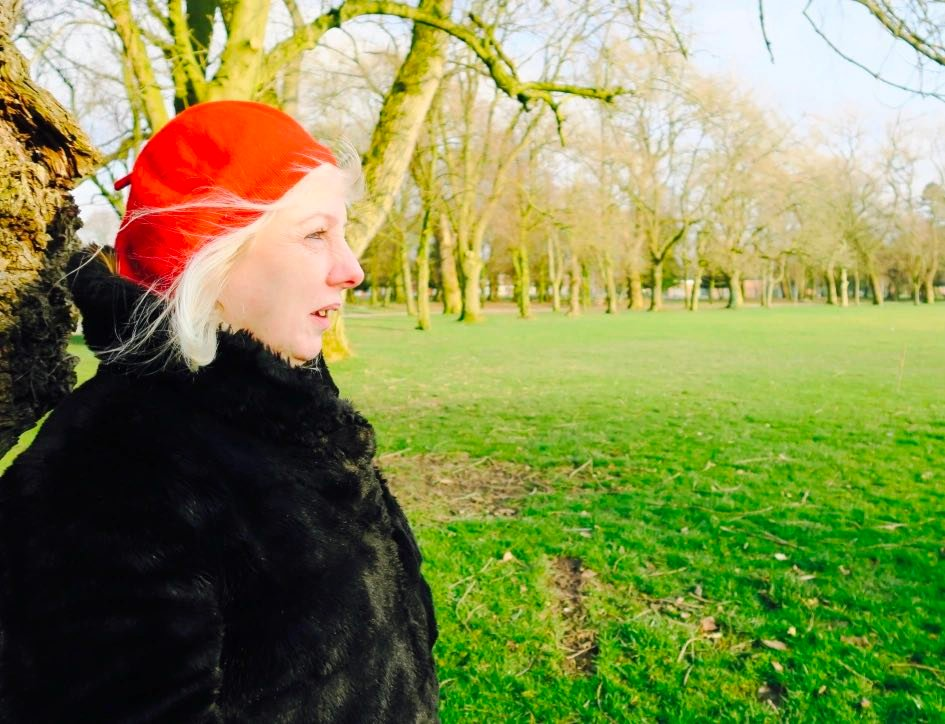
People were having enemas all the time, and we were told at school that if you had too many enemas you get a spastic colon. Also, the food was ridiculous. One of the managers said at a briefing on the ward that they couldn’t have more money for food because the budget for medicines was massively bigger than the budget for food. And he said it so matter of factly; there was nothing in him that made it feel wrong, no explanation. So healthy food was out of the question. It was institutionalised, the staff as much as the people who were there. They didn’t question anything, they just carried on, and it could have been so much better. More recently, I volunteered at Trafford wellbeing centre where there was a supportive environment for people with mental health problems – they could do music, art, or just drink tea all day and chat or be on the computer.
Back then, in Prestwich, there was a guy called Greg who started something called the Mental Patients Union. He used to come in a big van and patients who were classed as ‘informal’ – which meant they could come and go as they pleased – would come and we’d talk about patients’ rights and things like that, and what they did on some wards. There was a guy called Terry, a bad alcoholic but a lovely guy, and they threatened him for going to these meetings even though he was allowed to. They couldn’t handle anything that was outside of that regime. When One Flew Over The Cuckoo’s Nest came out we went as a group of student nurses to see it.
It must have been like a documentary for you!
It was quite hard to leave the hospital but I couldn’t do both in the end, and I knew that I couldn’t make a difference on my own. When you are that young you think you can go in and change everything, you think ‘All I need to do is point out a few things and it will all be transformed’ – that’s what’s great about young people, they have all that passion and belief. It’s a seed that needs nurturing, to feel like that is really important. I think things can change, usually out of necessity, but capitalism is not sustainable. You can’t keep taking and taking, not putting anything back. Finding every little place you can make money from erodes our humanity and exploits everything. It’s sick, it’s like a disease.
Some people say that Mark was right wing and anti-semitic, and rubbish like that?
Una: Of course he wasn’t anti-semitic! We did loads of Rock Against Racism gigs, in fact most of our early gigs were Rock Against Racism. We were quite passionate politically. I remember we went to oppose the National Front on a march in town. Police were protecting them and we were all throwing stones at them. Skinheads used to come to our gigs and start throwing bottles at us, and we used to get behind our amps and throw them back because you’re fearless at that age. It was very political in those days, there were women’s groups everywhere, ‘consciousness raising groups’ they were called, and we had Spare Rib, Women’s Voice and more…
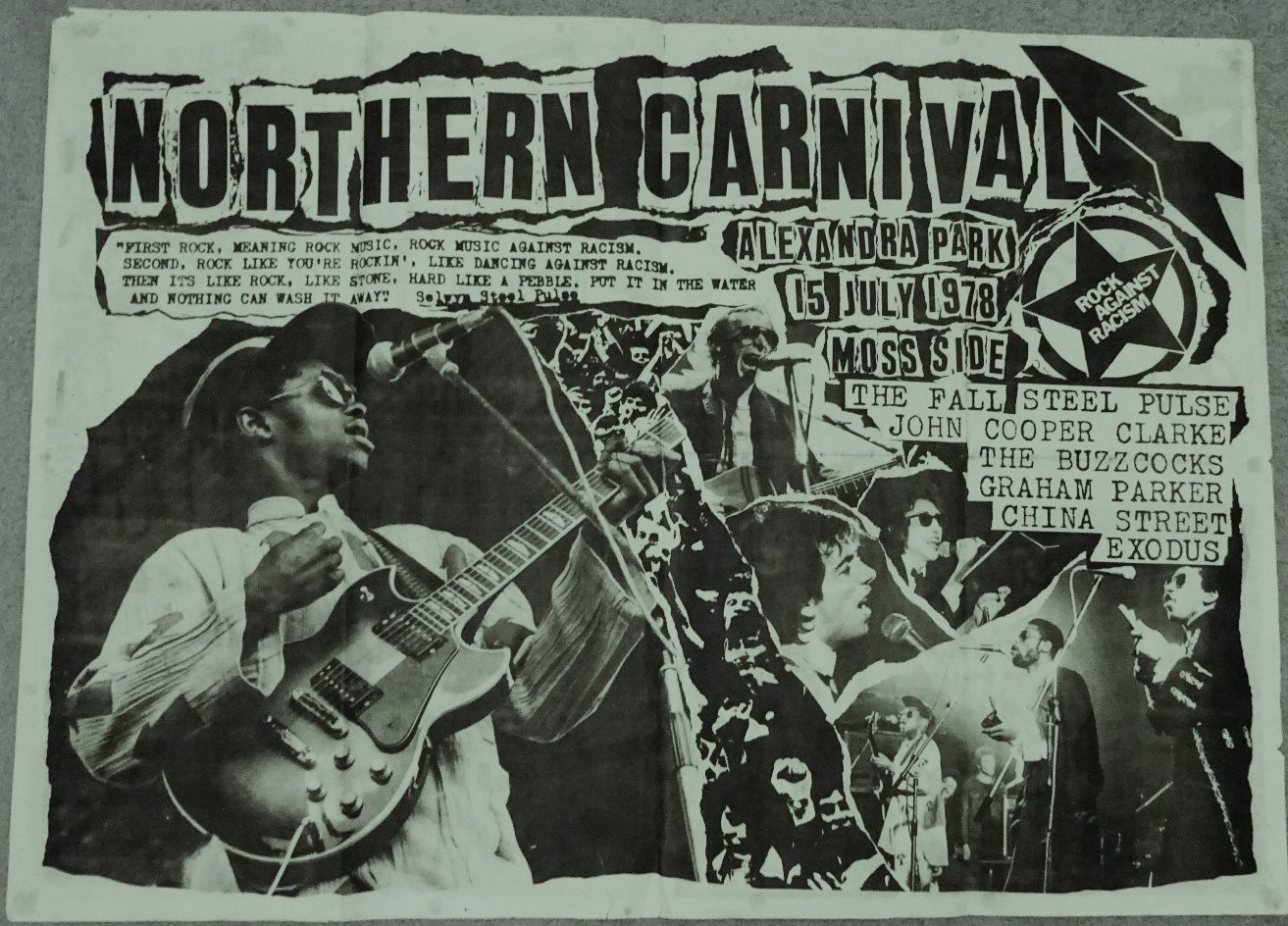
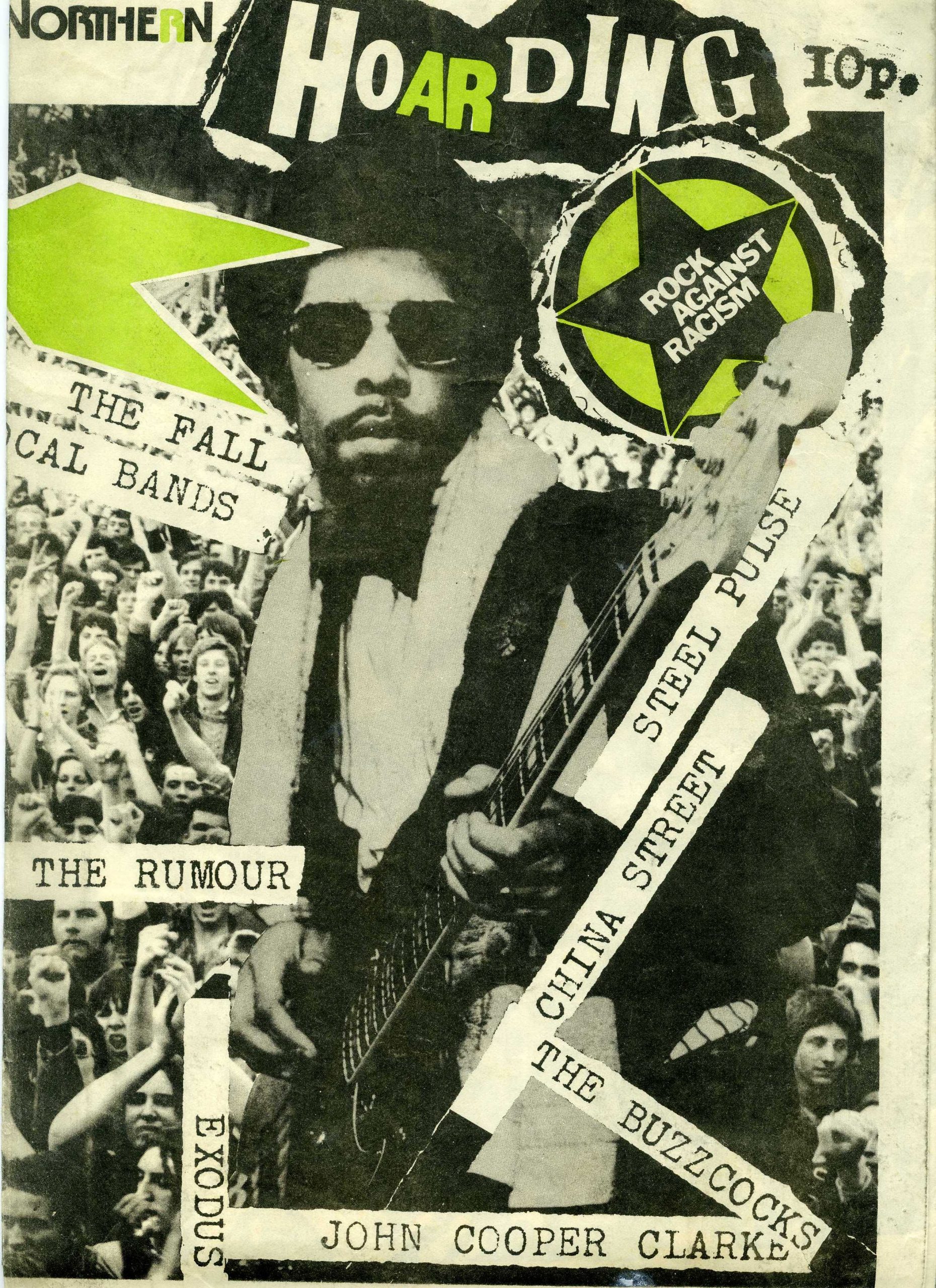
How special do you think Bury New Road and Prestwich are in the mad scheme of things?
Una: There is an energy. People talked a lot about philosophy and mysticism and things like that. John Godbert, who did the cover for Live At The Witch Trials album, did a map of all the ley lines in Prestwich…
Me and Mark saw a ghost in Heaton Park and I’ve never seen one before or since. We used to go there a lot and this particular evening we were near the hall that had lights on it. We were both looking and he said ‘Can you see what I can see?’, grabbed my arm and we just ran to the gates. It was like a monk hovering about two feet from the ground, with a cowl and no face, and we both saw it and described the same thing to each other.
Around that time there was also John Cooper Clarke, Nico and Alan Wise knocking around the same area. Did you all talk to each other?
Una: Eric (Ricky Goldstraw) came to see The Fall, went back and told John Cooper Clarke ‘You’ve got to see this band; they’ve got no style, they’re really loud, out of tune and fucking brilliant!’. He joined The Fall as I was leaving but they sacked him as he wouldn’t get in the van to do a John Peel session because he didn’t like the conga player’s shirt!
Alan Wise, bless him. He used to let loads of punters into the gigs for free, then not pay the bands and he’d go and hide in a hotel for a week until it died down. It was mental! And then he’d have these creditors’ parties. He had such guts to do that, like, ‘This is how I blag my way out of everything’. He was funny.
You also played keyboards for Nico?
Una: I was in awe of her to be quite honest. She had a nice aura, gentle; she was Libran. I wouldn’t say I was close to her but I had some conversations with her and really liked her. I was a bit of a fan at first. We played as the Blue Orchids and then backed her as well. It was great, I loved it – she used to let me soundcheck her keyboards…
So, how should The Fall be judged?
Una: Innovative, challenging, non-conformist. It was about expressing yourself and not sitting in groups with all the same mentality. It was about finding your way of expressing stuff and not being part of a clique…
Una Baines now lives in Whalley Range, has a top band called Poppycock, with an album to come out in the near future…
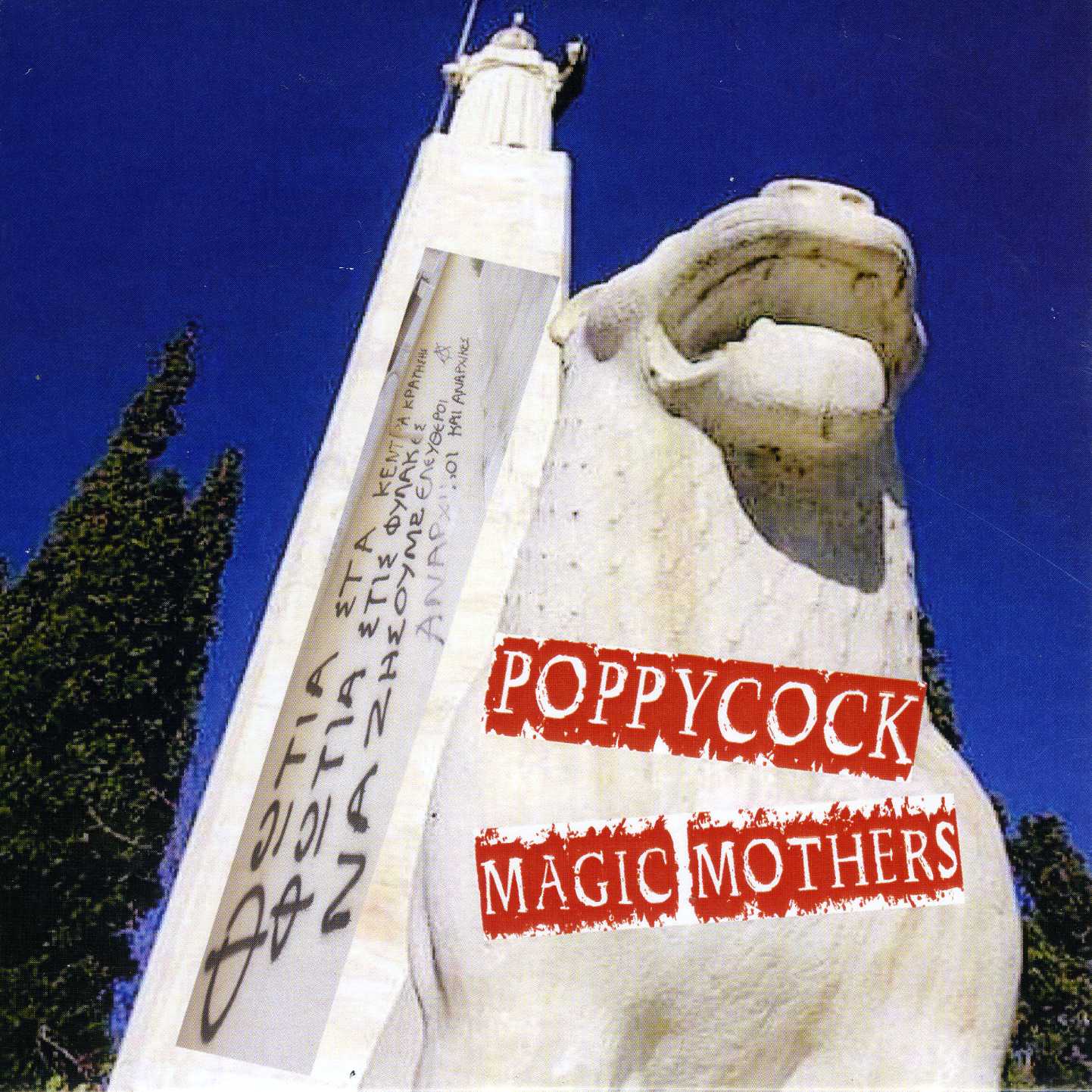
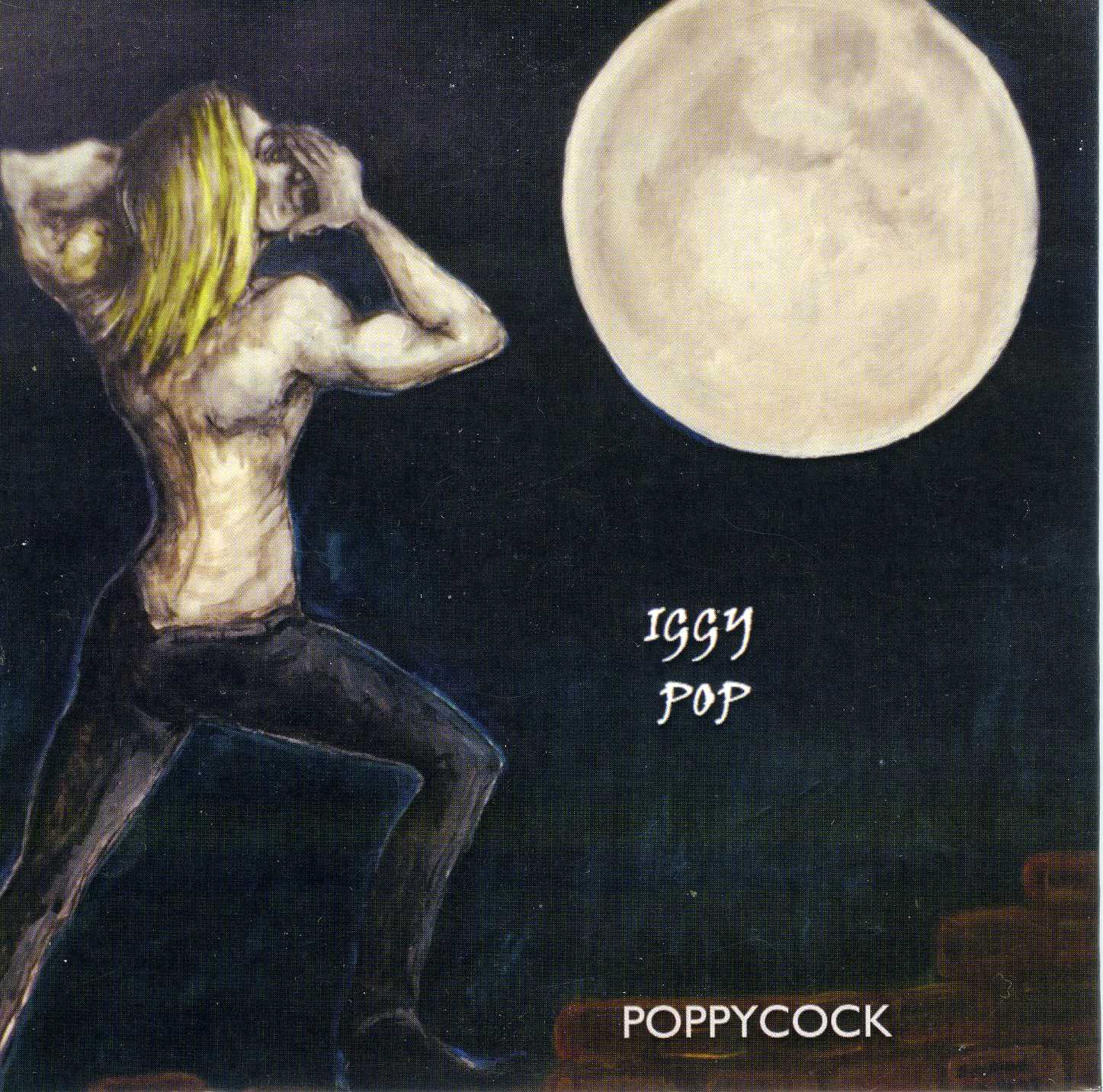
Poppycock cover artwork by Suzanne Smith
In 2015, Una teamed up with Australian comic book artist, Keith McDougall, to create I’ll Be Your Mirror, with the first issue devoted to her relationship with Mark. The comic is described by Jo Bevan of The Quietus website as “a charmingly different take on the artist autobiography”. Here’s some samples…
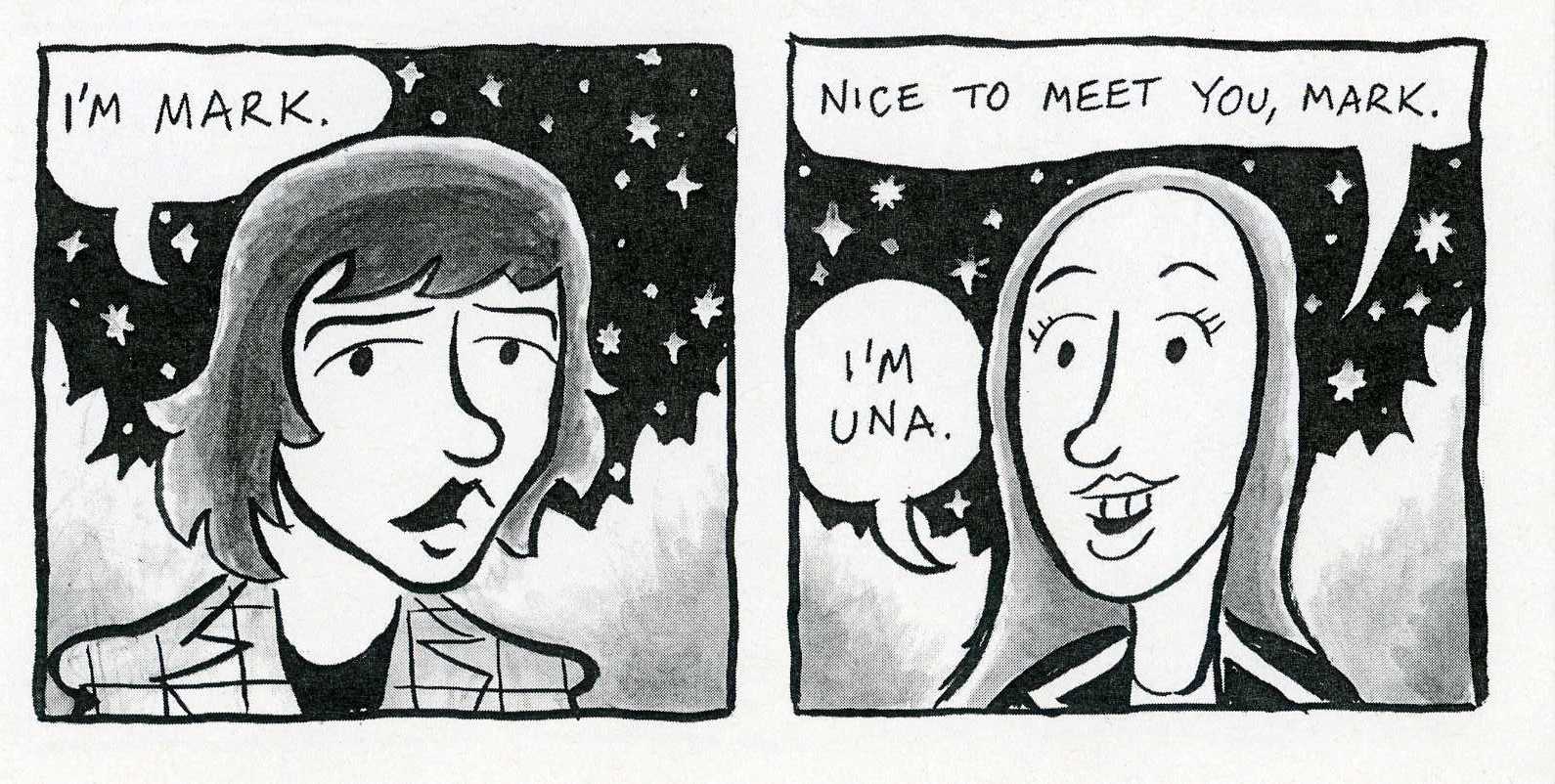
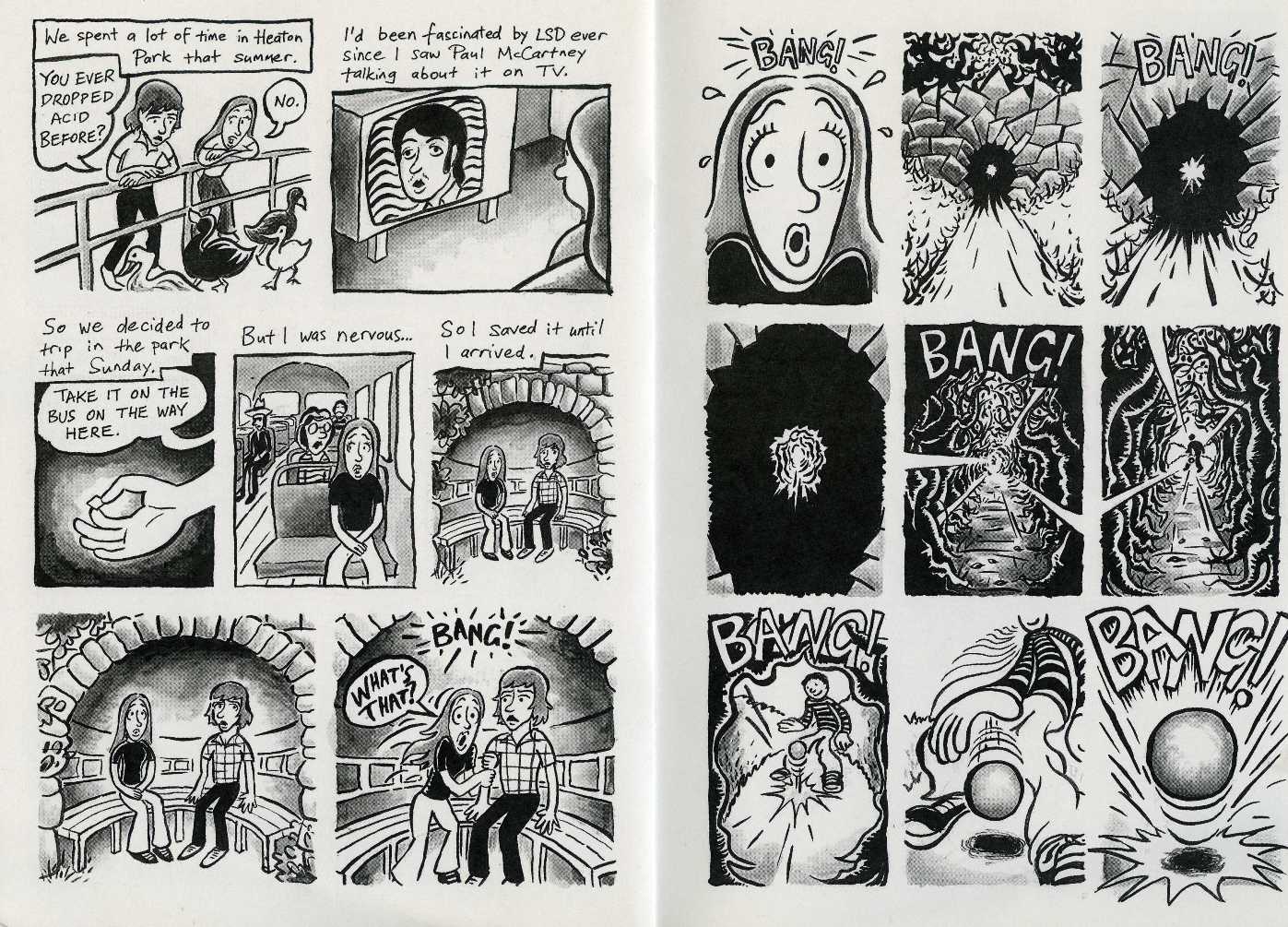
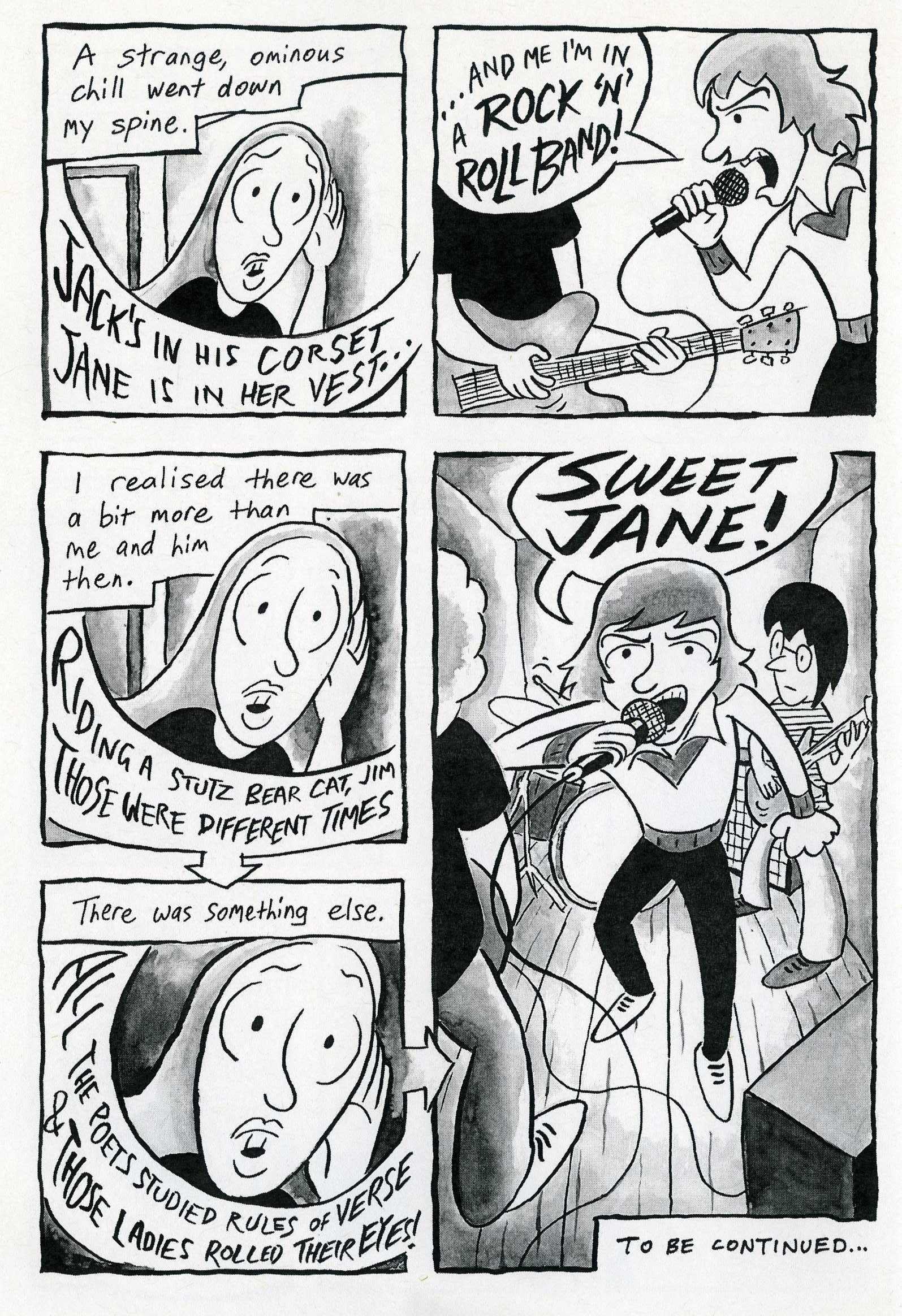
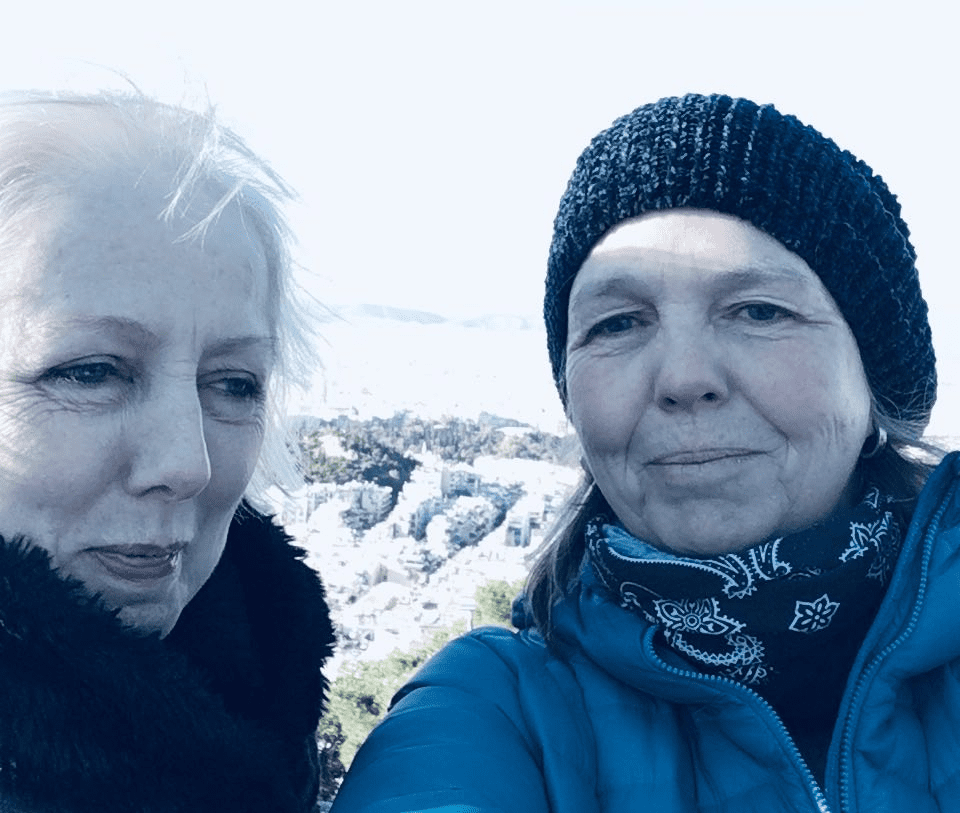
Also see…
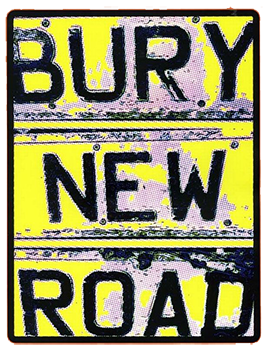
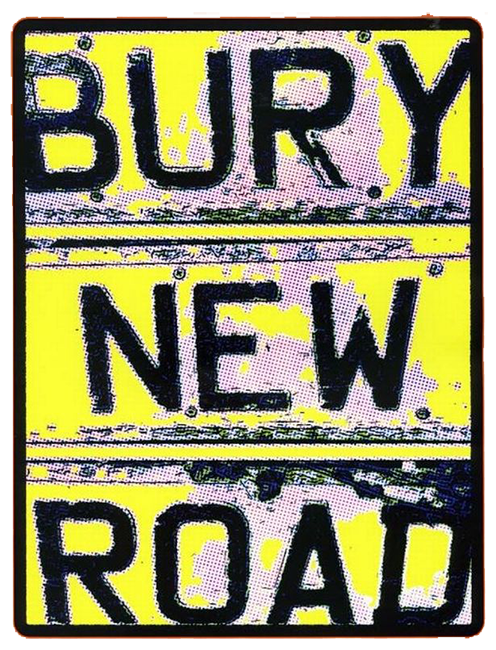

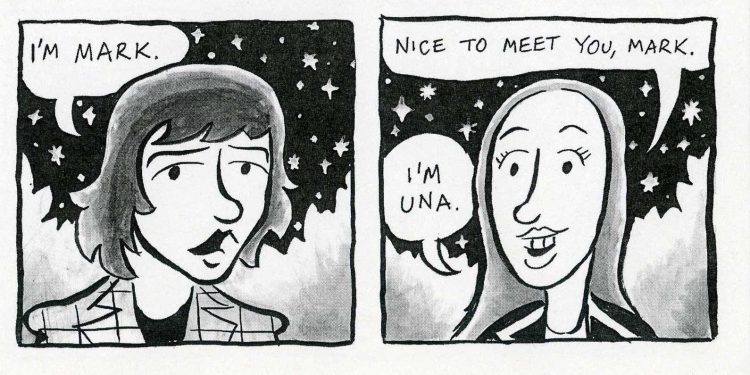
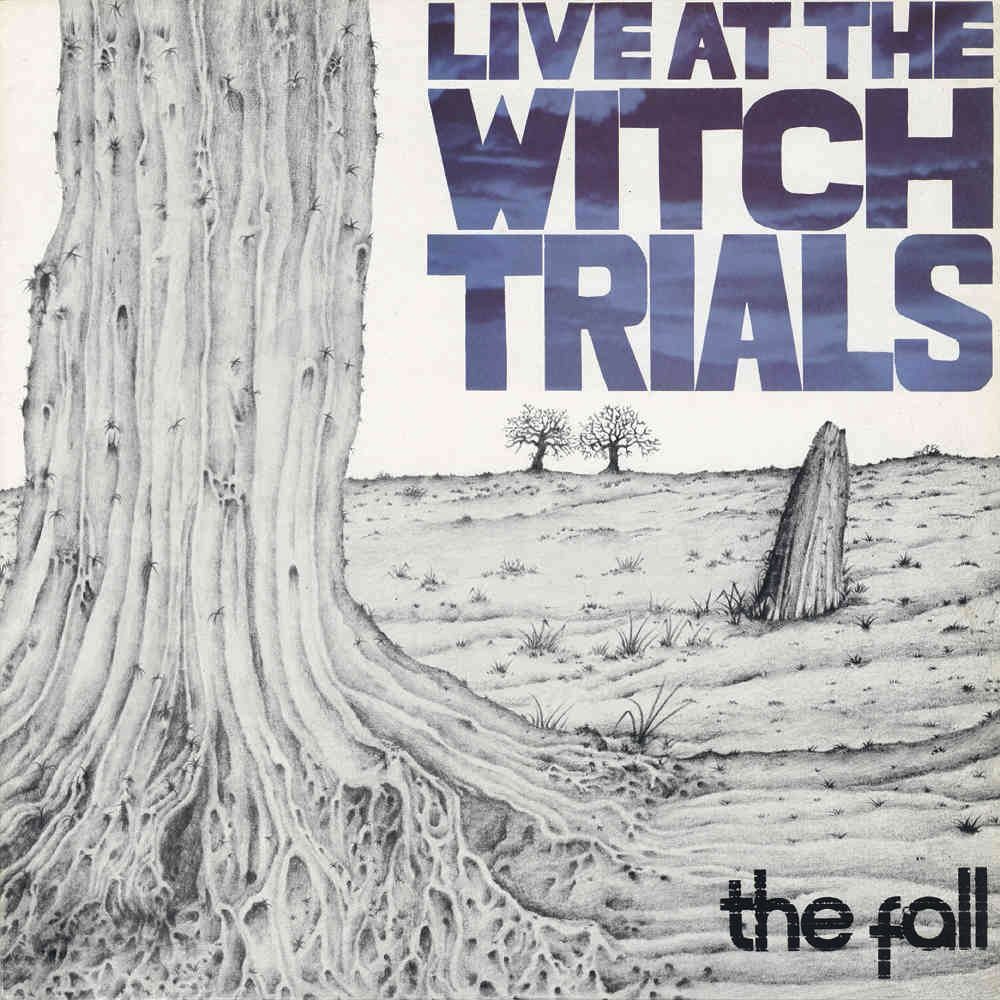
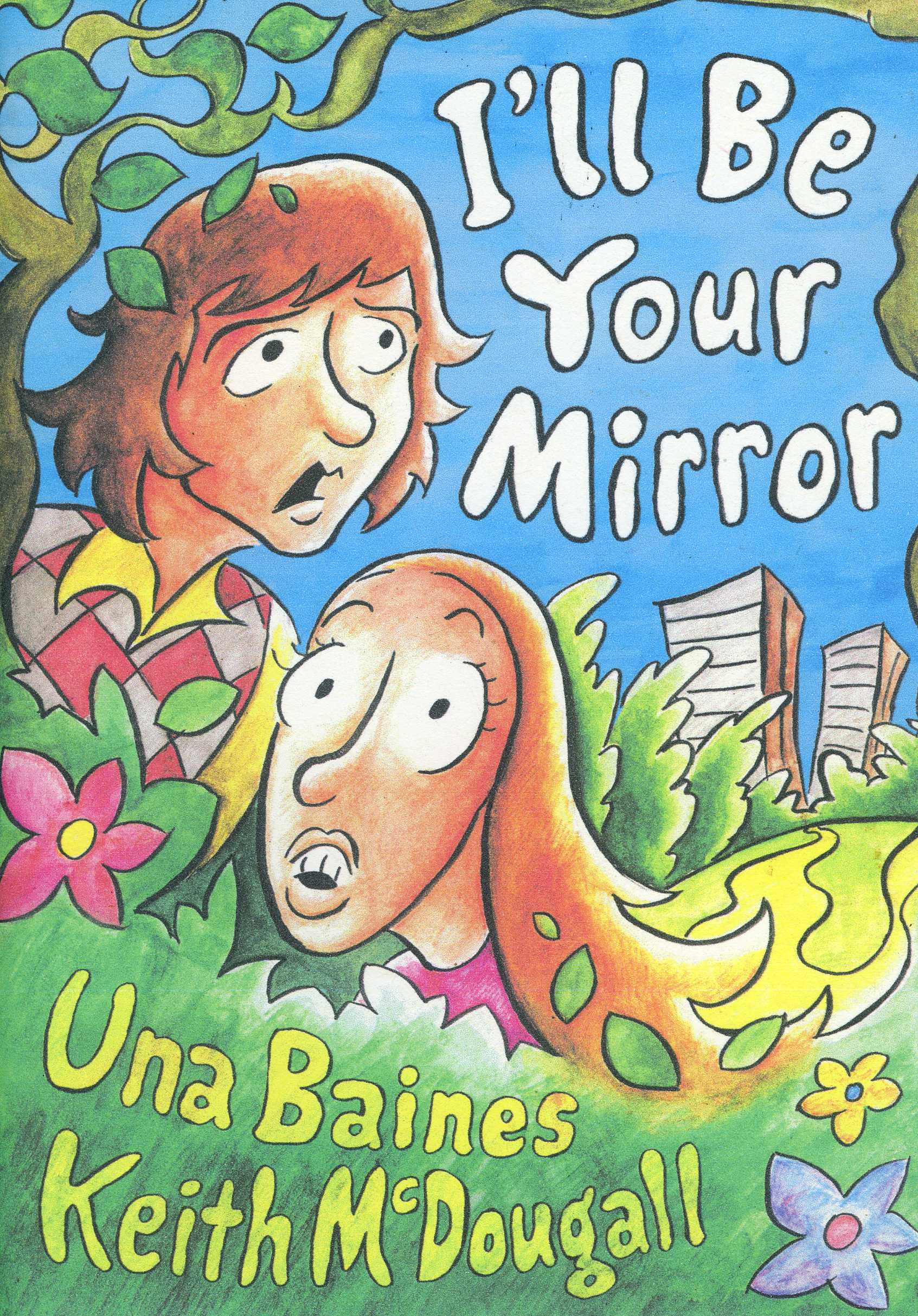




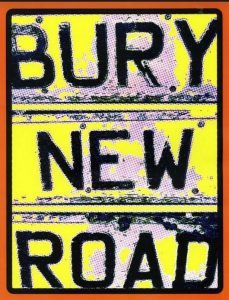



Excellent article
I remember you Una as I was a student nurse around the same time. Great account of the life and times of the asylum. Glad to hear you are still making music. Have you seen Don Montgomery’s photos in the book “Gods Fox””
I actually lived in that house in Kingswood road from 1975 to 1979. And worked at the new Atu clinic. We had so much fun and I even visited the Unit on days and nights off. Unit now knocked Down to make way for tescos car park. Those were the best working days of my life. So many of my colleagues now passed away
Gerry mckeown. Barry Powell.brian napier. Tom
Rawstron. Rosemary.margaret Jones dr
Brian hore
Hi. I wrote on Prestwich site too, that I li Ed there with my boyfriend in 1982. Molly, the blooming cat lady drove me mad. We had a cat, and she used to peer into the window, and lure our cat, and then complain that we didn’t look after it. She wasn’t very nice at all!
Largatil -we used to call it “liquid cosh”- would completely destroy your thought process!
Hi. I wrote on Prestwich site too, that I li Ed there with my boyfriend in 1982. Molly, the blooming cat lady drove me mad. We had a cat, and she used to peer into the window, and lure our cat, and then complain that we didn’t look after it. She wasn’t very nice at all!